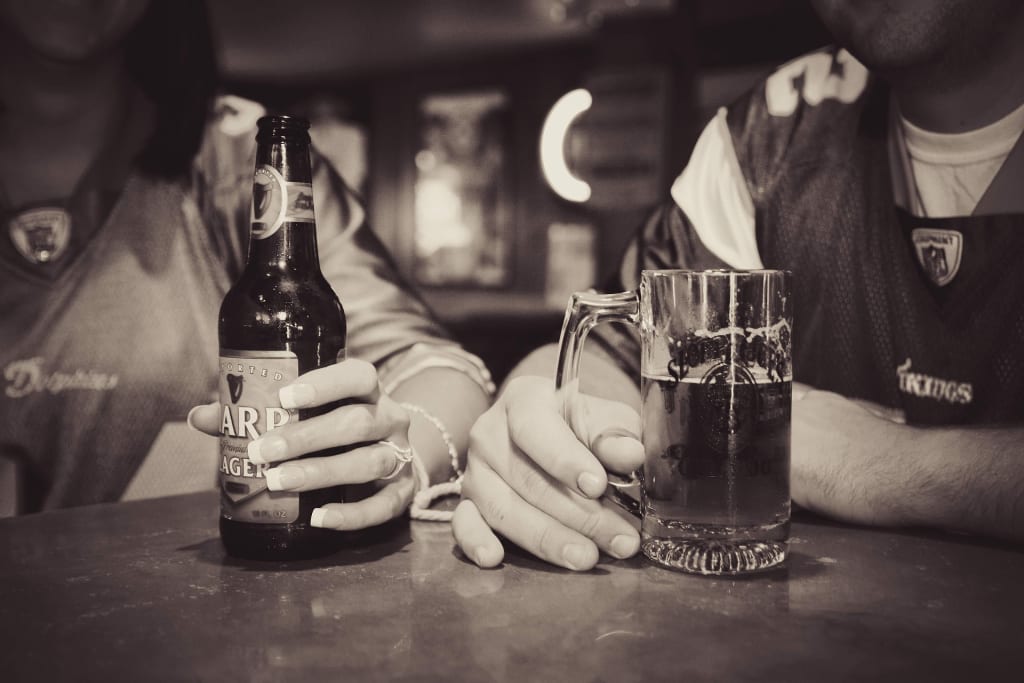Do Professional Athletes Ever Drink Alcohol?
A common belief is that all successful athletes avoid alcohol like the plague but this is not necessarily the case

There is a common belief that all successful athletes avoid alcohol like the plague but this is not necessarily the case. You see, when talking about professional athletes, popular media usually portrays them as these disciplined, driven machines without a single vice. This portrayal is, truth be told, quite dishonest and it’s only justified if the one creating the image is trying to set the right example in the eyes of the younger audience. The problem lies in setting impossible standards, ones that these kids won’t ever be able to live up to. Such a thing will inevitably lead to disappointment and all negative ramifications that come along.
On the other hand, alcohol is not just a harmful beverage. It’s a liquid compound that possesses many different properties, some of which could even be quite useful in one’s athletic endeavors. Even if that were not the case, the truth is that when taken in moderation, occasional consumption of alcohol can become not that big of a deal, even for professional athletes. With that in mind and without further ado, here are several things you need to know about mixing alcohol and athleticism.
Moderation of use
When used moderately, there’s no reason why alcohol should prevent one from pursuing a career as an athlete. Naturally, binge drinking before a camp or going on a bender the night before an important competition is always a horrible idea. However, professional athletes are often under a lot of stress. The industry itself is incredibly competitive and there’s often a huge reward purse that depends on their performance on a single day (sometimes within several minutes or even seconds). So, it’s not unheard of that a professional athlete would enjoy a drink of their favorite glass after a long day, as an exhaust vent. The problem, however, happens when this becomes a habit.
Proper schedule
Another thing worth discussing is the timing of your alcohol consumption. For instance, consuming alcohol (even in traces), right before the exercise and decrease both one’s endurance and performance. This is why it’s recommended that, if it’s to be taken at all, it is taken after the training session/competition. Still, consuming alcohol after the exercise may somewhat reduce the speed of recovery. Nonetheless, when done in minor quantity and on occasion only, the ramifications will not be as dire.
Health benefits of alcohol
There are so many health benefits of alcohol worth taking into consideration. We’re talking about reducing the risk of developing heart disease, reducing the risk of diabetes and boosting your immune system. However, issues that lead to these health problems are usually not something that athletes are generally affected by. Their BMI is already keeping them on the safe side of all preventable heart issues, while their immune system is often bolstered by dietary supplementation in various forms. Now, whether or not negative sides of alcohol will impair one’s athletic performance, it all depends on the quantity and frequency of consumption.
Staying hydrated
Another issue with alcohol and the training process is one of hydration. Namely, alcohol is known to dehydrate one’s body or, at least, facilitate the pace of this dehydration. This is why it’s even more important for athletes who are known to relax with a glass of alcohol (every now and then) to follow that glass with a glass of water. Drinking enough water throughout the day is always a priority for an athlete and when alcohol is added to the mix, this becomes an even bigger priority.
The problem with calories
The next thing that professional athletes have to worry about is the calories. In combat sports, for instance, cutting weight and staying within your target weight class is of the utmost importance. In fact, some athletes even go as far as to say that cutting weight is more difficult than the training process (or the match) itself. In that particular scenario, all alcohol should be out of the question. Nonetheless, if one decided to relax with a single glass, the choice of beverage would be quite important. A single glass of wine or, better yet, something fruity like slivovitz liquor would definitely be a superior alternative to beer. This is due to their lower caloric density.
Alcohol and sleep
Some people turn to alcohol in order to fall asleep, this is especially true if they have too much on their mind and worry about what tomorrow brings. However, using alcohol to improve your sleep is never a good idea. For starters, if you’re already exhausted (sleep deprivation from previous nights) and decide to go for alcohol, your body will be under a larger pressure than usual. Keep in mind that when it comes to recovery, natural means and a clean lifestyle are paramount. Alcohol is also known to somewhat slow down the recovery process, in general, however, even with the strictest athletes, the rigorous training camp doesn’t last for more than several weeks (2-8 weeks).
Do professional athletes drink alcohol?
So, do professional athletes ever drink alcohol? Well, some do. In fact, some of the most successful athletes of our time (like MMA’s Jon Jones) is often described as an excessive drinker. While Jones is hardly a suitable role model, it’s easy to understand why someone under such pressure would turn towards this kind of pressure reliever. In his own words, he sometimes used to go on a bender a full weekend before the fight, in order to create an excuse should he lose in the following bout. This is clearly not a good habit but it does help put things into perspective.
In conclusion
In the end, like with any other group of people, making general conclusions is never a good idea. Some athletes drink, while others completely avoid alcohol at all times. However, this is something that can be said about any other group of people, as well. The bottom line is that any form of generalization or trying to portray alcohol as that one huge villain is not necessarily true. Nothing in life is so black and white and when used in moderation, occasional consumption of one’s favorite beverage can give a positive outcome.
About the Creator
Jason F. Hopkins
Jason is a business consultant with a passion for writing. Doing his research, exploring and writing are his favorite things to do. Besides that, he loves playing his guitar, hiking, and traveling. around the globe.






Comments
There are no comments for this story
Be the first to respond and start the conversation.